Through pamphlets, web pages and even tour guides, Macalester insists that “location matters.” Students, faculty and staff tend to agree and say that the college stood out to them because of the surrounding urban area. However, a look beyond the surface and into the past and present activity of the college reveals that location is much more than an ad campaign.
In 1881, seven years after Macalester’s founding, the only building on the campus was the Winslow House, a stout edifice surrounded by hundreds of acres of farmland, situated on Thomas Holyoke’s Farm. That year, Edward Duffield Neill and his fellow trustees bought the property: one hundred and sixty barren acres bounded by Summit Avenue to the north; Snelling Avenue to the east; St. Clair Avenue to the south and Fairview Avenue to the west.
“They bought up this farm property, [with] the intention [that] it was an investment,” Jeanne Kilde, religious studies professor at the University of Minnesota and author of “Nature and Revelation: A History of Macalester College,” said.
“If you’ve seen pictures, you can see that there was nothing there [on the farm property],” Kilde said. “Most of what the Macalester people built was housing for faculty; issues with housing [date] back to the beginning of the college.” The trustees pursued a two-part development strategy: to expand the college and to increase residential development. 40 of the acres were devoted to the school, and the rest were used for the new “Macalester Park” neighborhood. The developer, civil engineering firm Elmer and Newell built several streets, naming them Dartmouth, Amherst, Cambridge and Princeton. According to Thomas R. Zahm and his associates at Historic St. Paul, the names may have been intended to tie the neighborhood to the college by setting an intellectual tone to attract a wealthy and intellectual population.
By the early 1920s and 1930s, more residential development had sprung up in the Snelling-Randolph neighborhood, and residents began buying the once college-owned houses.
By the early 1950s, however, the neighborhood had changed; many of the homes had fallen into disrepair and development slowed. Fortunately for the college, at that time former student and benefactor DeWitt Wallace, an alumnus of the class of 1911 and founder of Reader’s Digest, was making multi-million dollar donations to the college to fund specific projects and programs that he felt would bolster Macalester’s national reputation. One of his major investments was the foundation of the High Winds Fund in 1956, a college-run but separate entity intended to rejuvenate the neighborhood and its homes. From 1956 until 1989, the High Winds Fund bought residential properties and paid to renovate them.
“In the ’60s, my sense is that the main objective was to make [sure] that the neighborhood didn’t fall into disrepair,” President Brian Rosenberg said. “There were a lot of vacant houses, a lot of houses that were in need of renovation in the area around the college.”
According to Kilde, the High Winds Fund’s mission to improve the neighborhood was reminiscent of the college’s early development goals – it was a means of investment.
“In the 1890s when they built those houses, they were investing in the neighborhood,” Kilde said. “I think that’s part of what DeWitt Wallace was thinking about when he invested in High Winds [in 1956]. He was, I think, involved in how those houses were used, who they would be rented to. I think he did want to have his say in that regard.”
According to Kilde, Wallace’s intentions behind buying the houses in 1956 was to provide affordable housing for faculty and staff members. Many of these members took advantage of the available housing, including those that were black, which raised tensions among some renters in the neighborhoods.
The question of race at Macalester was really problematic at that time, and some St. Paul residents were having problems with students,” Kilde said. “Students often boarded in houses back then, and many houses wouldn’t rent to African-American students.”
Kilde says that the fear of black Macalester students moving into the neighborhood is comparable to the overwhelming fearful white sentiment in the 1960s that black residents would move into traditionally-white neighborhoods. “There was [the First Methodist Episcopal Church] at the corner of Holly [Avenue] and Victoria [Avenue]. During [the 1950s and 1960s], they were doing construction with I-94, and there were rumors that [I-94] would go right through the Rondo neighborhood, which is a predominantly African-American neighborhood, and that all of those black people were going to move toward Summit Avenue.”
“After they heard about the construction, the [First Methodist Episcopal Church] did a survey of the neighborhood and decided, about three months after that survey to abandon it,” Kilde said. “A example of the white flight that was common at the time.”
Because of this trend, Kilde noted the possibility that, through High Winds, Wallace harbored a desire to keep the neighborhood white. Over the years, however, High Winds evolved and moved away from buying residential property.
In the late 1990s, after selling most of its homes, High Winds took on a role as a landlord for commercial properties in the Macalester-Groveland area, purchasing the building where Breadsmith and its surrounding properties reside in 1997 and the space where Pad Thai resides in 2000.
“We’re no longer really needed now to make sure that the residential neighborhood is healthy because it’s now one of the more expensive neighborhoods in St. Paul,” Rosenberg said.
Although its property ownership may have changed, the goals of the High Winds Fund have not; its website states that Wallace established the fund to “prevent the problems of urban blight.” According to Seppanen, urban blight takes form in vacant or occupied buildings that are not being maintained, and places that look abandoned and may be unsafe in today’s context.
“[The High Winds Fund] is mostly about having some control over what goes in right next to the college,” Rosenberg said. “You don’t want someone putting in a dive bar around the corner from the college. And so if we own it, we know it will be well-maintained.”
“Having control simply means we have a choice to; obviously there [are] market conditions on top of all of that, but we would have a choice as to which retailer would go into the space,” Sepannen said.
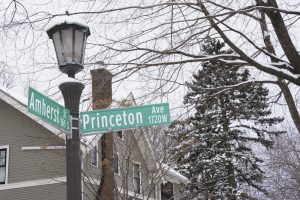
Urban blight is defined by Merriam-Webster as a “deteriorated condition of a city” and has been used to describe cities since the late 19th century. “I think people using the word blight are using it to describe an area that is not meeting expectations for development or growth,” urban geography professor Dan Trudeau said. “The term blight is often used to basically be a less controversial way to talk about unwanted land uses.”
“I can say that within 120 years of planning in the United States, people in power use ‘blight’ in an attempt to be clinical about how cities aren’t working in ways that people want them to,” Trudeau said. “So there’s a normative quality there, there’s a belief in the world as it should be, and an identification of what’s falling short to that normative vision.”
As Seppanen, Rosenberg and the rest of the committee members help select which businesses may occupy the college-owned rental property, the High Winds Fund remains a means of making the area more desirable.
“Admissions definitely wants [the location] to be framed as a fun thing, that we’re in a fun area,” Campus Visit Host Coordinator Isaac Hart ’20 said. In addition to his administrative position, Hart acts as a volunteer tour guide and notes that location is a built in component of the tours.
“There’s not a script, but [there are] things you’re supposed to say,” Hart said. “One of them is to talk about the location. Sometimes students will ask, and parents will ask this too, if campus and its surrounding areas feel safe, to which I usually answer that I feel safe, but that doesn’t mean that everyone feels safe.”
One of the High Winds Fund’s first commercial properties was 1648 Grand Ave., where Patagonia currently resides. High Winds purchased the building in 1969/1970. One of the first tenants was David Unowsky, owner of nationally-renowned Hungry Mind Bookstore. Unowsky moved into the building in the summer of 1972, after first opening his business across the street in 1970.
“When first we opened in the summer of 1972, we were the Mac textbook store [also known as the Mac Market],” Unowsky said. “As time went on, we started to realize what an independent bookstore could do for the community, so we became a host to an independent bookstore of which there were very few at that time.” Over the years, Hungry Mind hosted many renowned literary figures for speaking events, including Angela Davis, Gloria Steinem, Noam Chomsky, Hillary Clinton and Michael Moore.
“We had something like eight novelists the first year, to 100 national-award winning authors with Pulitzers or National Book Awards,” Unowsky said. “And keep in mind, when we started, it was just me, the guy who was my business partner and eight student workers. That was it.”
In the late 1990s, however, Hungry Mind began experiencing financial difficulties.
“By the mid-’90s, the world changed a lot… around that time, the big box stores started up, [as well as] Amazon, so by about ’98 we were in a downward spiral and losing money,” he said.
Unowsky says that Hungry Mind’s struggles were exacerbated by the college’s termination of their textbook contract in 2002.
“They terminated their contract in about 2002, when they hired my textbook manager to run the bookstore that’s next to Common Good Books,” Unowsky said. “We had renamed the bookstore Ruminator at that point, and then, by the middle of 2003, we were in deep shit.”In order to salvage his business, Unowsky explored several financing options. Upon realizing that the stocks and bonds statute allows private citizens to lend amounts under a million dollars to public companies, the bookstore began selling stock for a minimum purchase of $250.
“We were up to $350,000,” Unowsky said “And a guy came along, he was a Mac grad, and said, ‘I’ll just put up all the money, I don’t want to have partners or stock.’ And we thought we had negotiated a deal with Macalester to go forward, including settling on what the store owed Macalester, and this guy was going to finance the store in the future… but then about two weeks before the lease contract ended, [Macalester] pulled the plug.”
It was the end of the bookstore’s 34-year life.
“Well, at the beginning, [our relationship with Macalester] was very good,” Unowsky said. “We handled their books, we brought famous authors to campus, we provided jobs for students. They rented us the space at not too crazy a rental, they lent us money, so it was pretty good. Up until [Vice President of Administration and Finance David Wheaton] came in… When I went to his office and saw that there was not one book anywhere, I knew I was in trouble.”
“The bookstore ran into financial troubles, and eventually decided to close,” Wheaton said. “They had gotten to the point where they were not able to pay their rent, so they decided to close after over three decades in that location.”
The next tenant, Patagonia, moved into the building in 2005. The High Winds Fund and Wheaton decided to lease the space to Patagonia given the lack of similar stores in the area – according to Wheaton, the nearest Patagonia is in Chicago – and appeal to the broader neighborhood.
“We’d like the block to be filled with unique, locally-owned spaces,” Wheaton said. “And, at least, to my sense, there’s a kind of feeling about Macalester, that there’s a skepticism of big corporate, and we don’t want it to turn into something like a suburb. It takes away some of the uniqueness of the location.” Currently, High Winds owns property east of Snelling Ave., including Breadsmith, Common Good Books, Jamba Juice, The Squire Barber Shop and the St. Paul Cheese Shop. It also owns property west of Macalester St., including Patagonia, French Meadow Bakery, Pad Thai Grand Café and the St. Paul Meat Shop. Other real estate includes two parking lots; one east of Dunn Bros. Coffee and the one across the street from Patagonia and French Meadow Bakery. Despite High Winds’ intentions to rent to local businesses, some students feel that most of the businesses represent national chains and sell products that are rather expensive and unfamiliar.
“I had never heard of most of the label stores around here until I came here,” QuestBridge Liaison Amy Vandervelde ’21 said. “Which might just be that I’m from a little town, but I think it also shows that some of them, if you go in and look at price tags, are kind of ridiculous. Like Patagonia.”
“It’s interesting that they aren’t more small-business type [stores around here],” Vandervelde continued. “A lot of them are chains. Even if they are Minnesota-related chains, they are chains. Erbert and Gerbert’s is a chain, Breadsmith is a chain. We have the independent bookstore [Common Good Books], but it’s not the least expensive bookstore that I’ve ever seen.”
As the QuestBridge Liaison, Vandervelde plans events and speaks with representatives of QuestBridge National, a non-profit program that links students with educational and scholarship opportunities at some U.S. colleges and universities. These students are low-income, and their families are not able to contribute to funding their college education. Vandervelde says that she has heard other students in Macalester QuestBridge discuss the unaffordability of the stores in the neighborhood.
“I really don’t hear about many QuestBridge students ever leaving the area, unless they’re in [Bonner Scholars] and they’re going off-campus to do their work-study volunteering,” said Vandervelde. “It kind of enhances the ‘Mac Bubble’ as a real entity.”
MCSG Community Engagement Officer Fatiya Kedir ’21 says she has also taken note of the stores in the local Macalester-Groveland area, and lack of student connection in the surrounding communities.
“Macalester and the Macalester area kind of tend to market towards upper-middle class people who aren’t [people of color],” Kedir said. “That’s kind of a reflection of where people want to be and where people want to stay… I definitely think that people don’t interact with other communities or different cuisines or help community partners.”
This piece is the first part of a two-part story. To read part two, please click here.



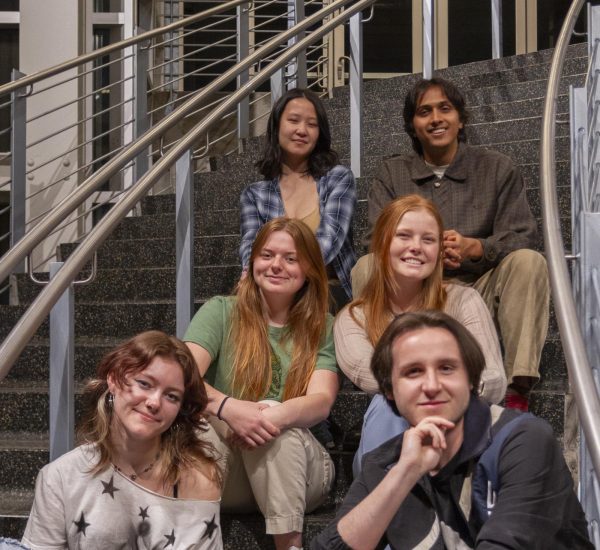

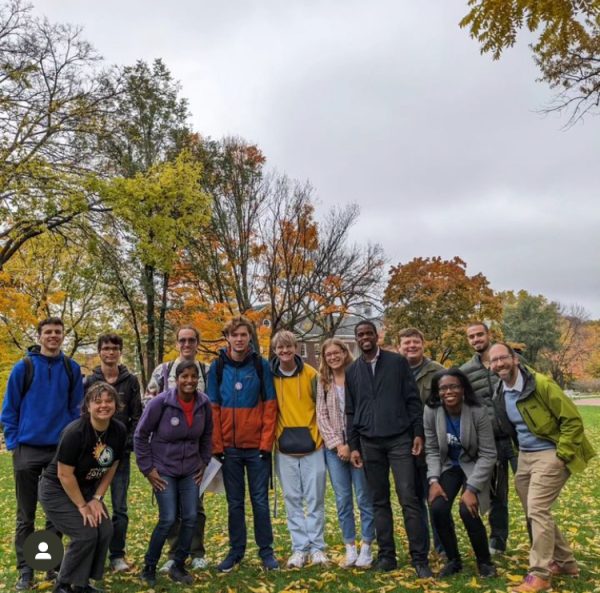





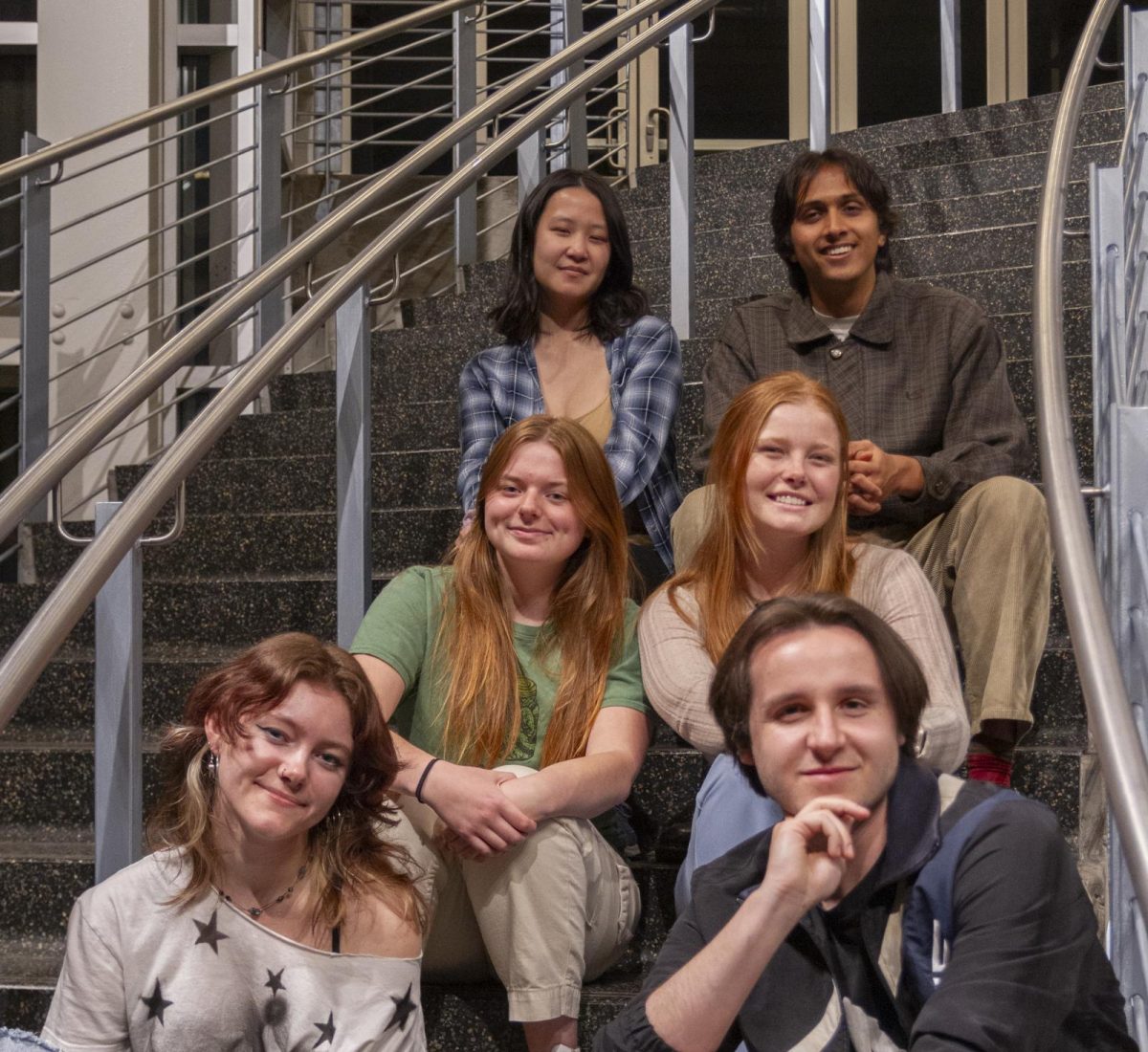
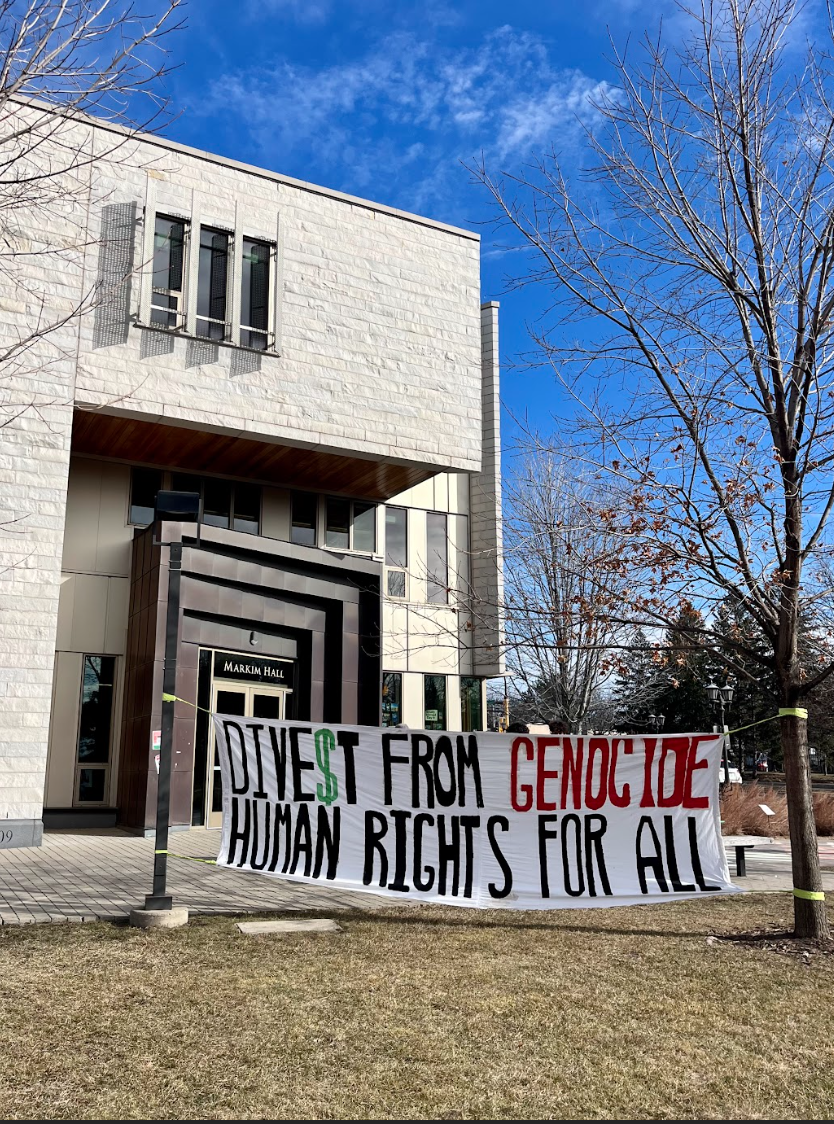


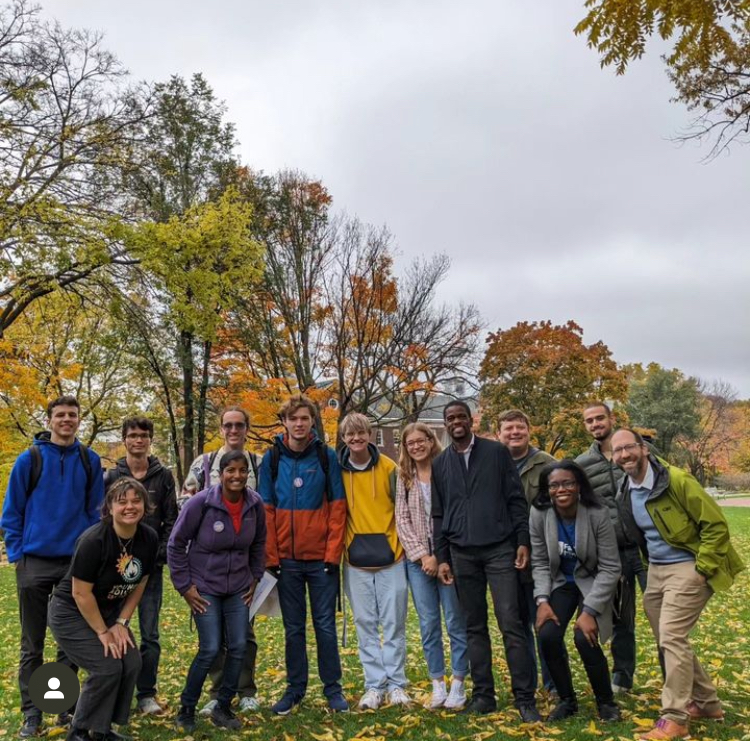


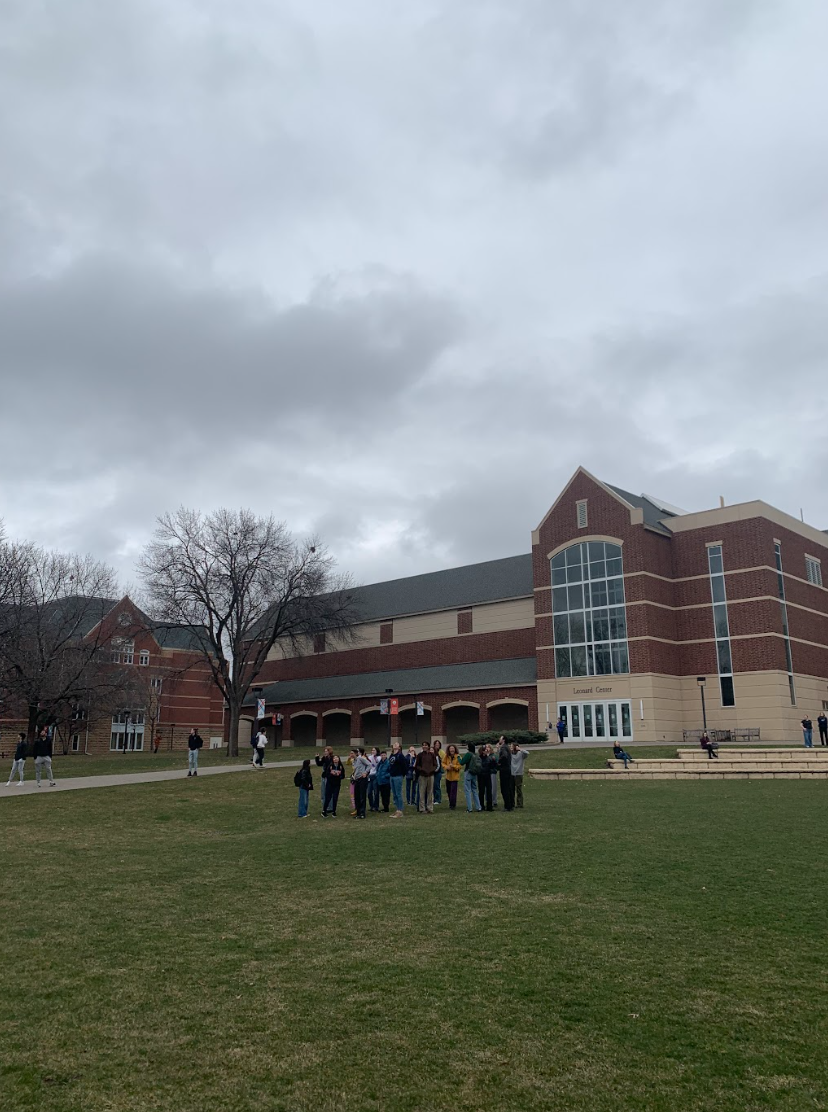
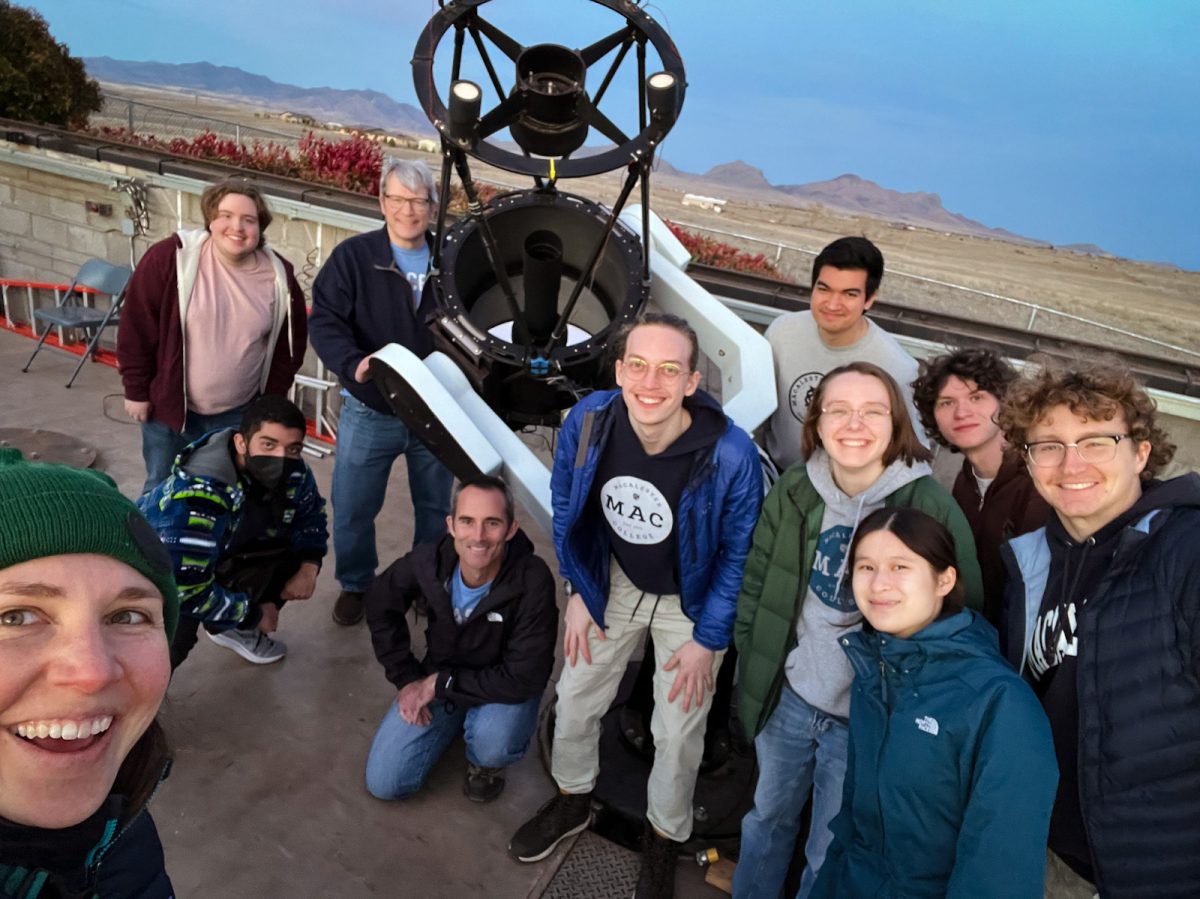

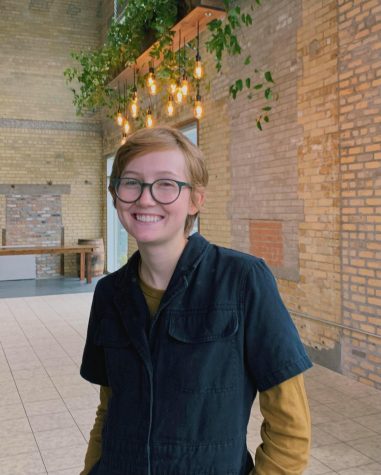
Ella Manning • Sep 6, 2019 at 6:02 pm
I always used to study paragraph in news papers but now as I am a user of internet thus from now I am using net for articles or reviews, thanks to web.
NativeDeodorantcodes • Jul 30, 2019 at 9:23 am
Includes anyone obtained any true success through HARO? It just seems that many of the reporters mounted on the organization are really from the US which do not possess much targets from other places specially within South Asia. Brian, are you able to immediate me to the full scenario studies? Thanks.
SkyZonecodes • Jul 29, 2019 at 7:23 pm
Thanks for sharing the brilliant post. You explained the hyperlink creating methods extremely.
Noomcoupon • Jul 29, 2019 at 2:06 pm
Yeah, nice content material but In the initial step. You states promote to people which you have mentioned within your post.
Chewy Discountcodes • Jul 29, 2019 at 10:58 am
Excellent article, some a lot effort spend here. The best technique so far will be the your textual content!
Stockxcoupons 2019 • Jul 29, 2019 at 8:47 am
Excellent article, some much effort put in here. My personal favorite technique up to now could be the your textual content!
Douglas Goossen • Jul 23, 2019 at 7:27 am
Mass parsite http://bit.ly/2W9CVkn